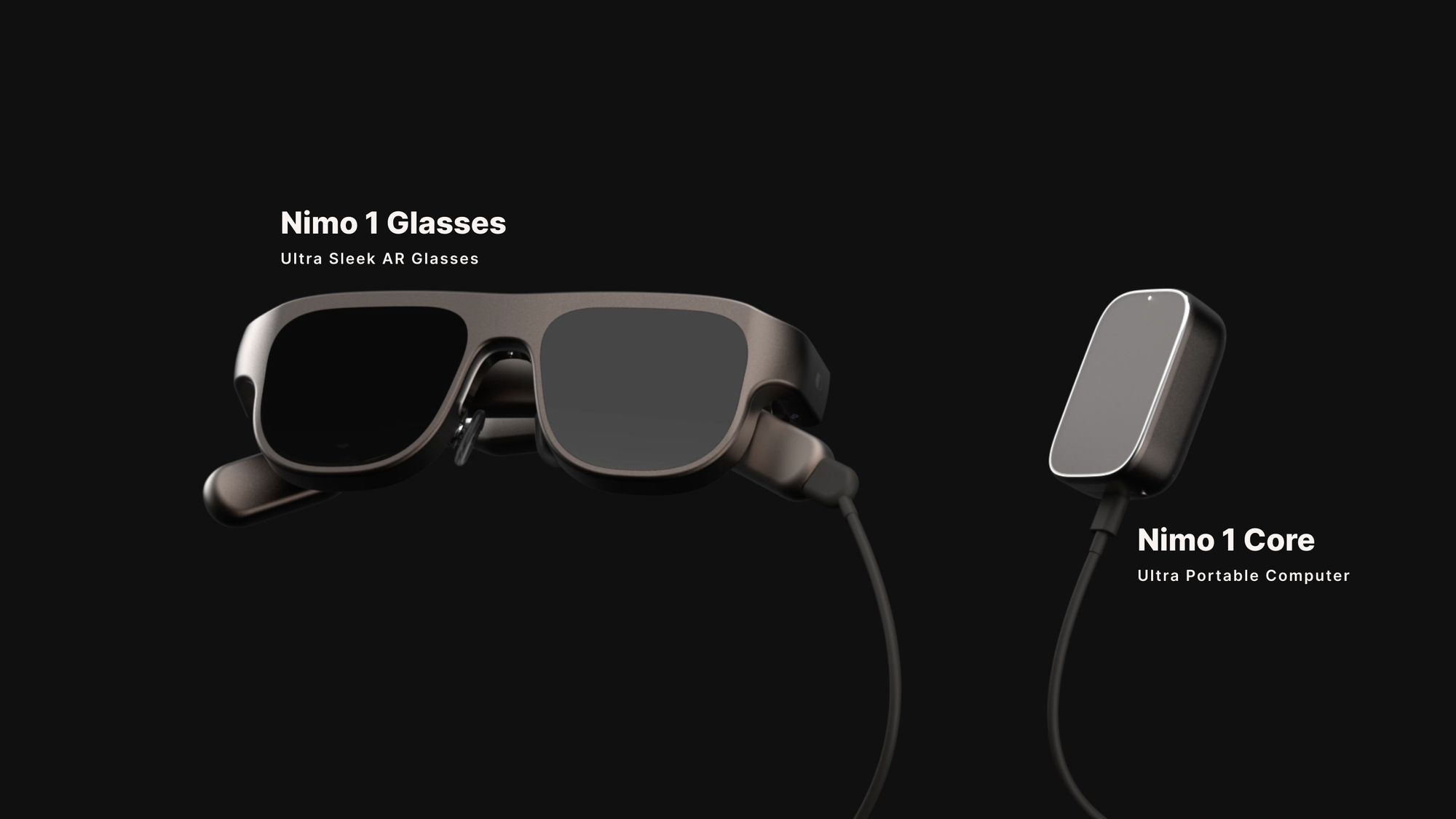Nimo is a productivity-focused spatial computing package consisting of smart glasses and a tethered puck with a spatial operating system.
Existing smart media glasses like the XREAL Air series focus on showing any USB-C (or HDMI with the beam adapter) display source on a virtual screen in front of you. Nimo instead uses a tethered compute puck with a mobile chipset running an custom Android-based operating system designed for productivity. The idea is to give you a highly portable multi-monitor workspace. It looks like a lot of effort was put into the design, though it’s unclear how much of this is conceptual versus what will actually ship.
Nimo was founded by Rohildev Nattukallingal, an Indian engineer & entrepreneur who previously launched a smart ring called Neyya. The Nimo system has been in development since at least 2019, based on Twitter posts, and the YouTube channel lists videos promoting a beta program around a year ago.
https://www.youtube.com/watch?v=ijf-ljQKc4wa
Nimo’s tethered compute puck, called Core, features the same Snapdragon XR2 Gen 1 processor used in Quest 2, but Nimo says the operating system is far more optimized and streamlined than Meta’s so can support up to six Android or web applications at a time. Nimo OS can also stream applications from your Windows or Mac PC via USB-C or Wi-Fi.
The Core puck also acts as an input device, with rotational tracking for pointing, and a trackpad for scrolling and tapping.
Of course, like most transparent display systems the field of view is very limited – around 45 degrees. In most situations you won’t be able to actually see more than one of the virtual screens at once. Unlike many other smart glasses startups though, Nimo is at least being somewhat honest about this in its marketing materials, with one of its clips depicting having to pan your head between monitors.
0:00
A semi-realistic depiction of the field of view problem of transparent optics.
A somewhat similar competitor called Spacetop was announced earlier this year. Spacetop also uses a Snapdragon XR2 Gen 1 chip for tethered compute, but places it in a keyboard instead of a handheld puck. Nimo supports Bluetooth keyboards, but doesn’t come with one. Spacetop’s glasses also have positional tracking (6DoF) so the virtual screens stay fixed floating in space, whereas Nimo Glasses only have rotational tracking (3DoF), so will move with your head.
Nimo 1 is now available to preorder for $1299. The startup says a $19 reserve fee is taken immediately, and the other $1280 + tax will be charged at the time of shipping. There’s currently no estimated launch date, though startups like this rarely meet their target when they do give one.





